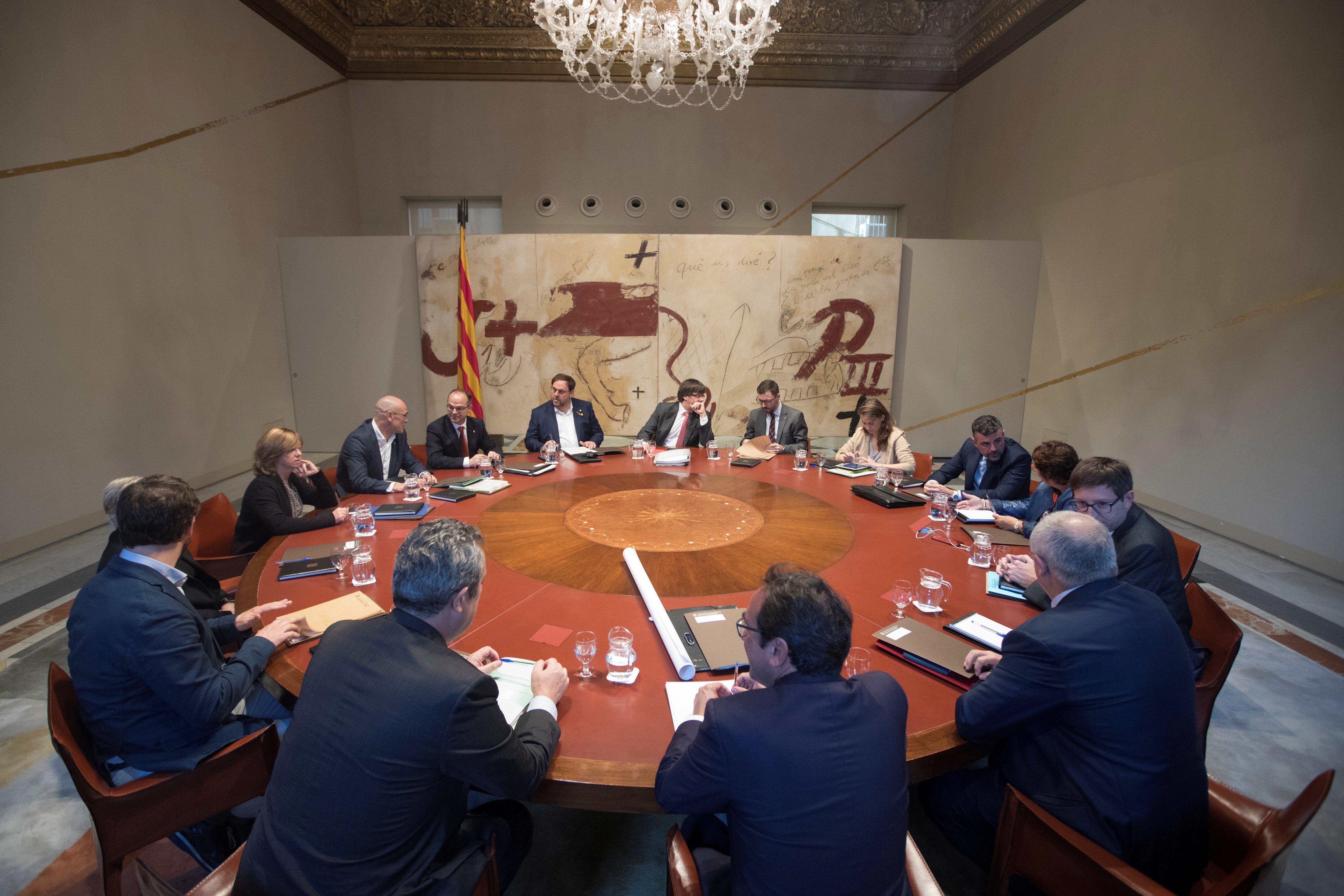The Catalan government has accused the Spanish Senate of making it "ever more difficult" for the Catalan president, Carles Puigdemont, to appear before the upper chamber to argue against the suspension of self-government via article 155 of the Spanish Constitution. Government spokesperson, Jordi Turull, insisted that the President wants to appear before the Senate, but noted that there is a meeting of the Catalan Parliament called for Thursday, which he also has to attend. This makes it difficult logistically for him to go to Madrid given the limited options offered by the Senate.
Whilst Turull was making this statement at the press conference following today's government meeting, it was learnt that the Senate has decided to offer a debate between Puigdemont and the Spanish government. Turull, also minister for the Presidency, said that there is "no type of fear" towards the debate and that the question isn't the type of appearance, rather whether the Senate really wants it to take place.
"At the beginning it was all making things easier, now it's changing everything. They told us that it was Wednesday, or Thursday until 12pm. Now it's in the middle of the Parliament meeting. We don't understand why there is this change in criteria. Our wish is to be there, but we're starting to deduce that there's a wish for it to be impossible," he said.
Delicate situation
Turull started the press conference warning that he wasn't going to announce anything about the political response from the Catalan government to the application of article 155 because the executive wants to agree it with JxSí (Together for Yes). "Unity is basic. These are very delicate, important moments," said Turull.
"We're ministers because the president nominated us and the president was chosen by a democratically-chosen Parliament. What the country wants and is interested in knowing is the political response", he said in response to questions about the continuity of the Catalan government once the suspension is passed and enacted which will involve the president, along with the vice-president and ministers, being removed from office.
Legal response
Turull did, however, discuss the executive's planned legal response. Firstly, an allegation of conflict of powers to the Constitutional Court, arguing that the measures proposed by the Spanish state "exceed all limits". The president will also present an amparo action, a type of action to protect constitutional rights on a number of procedural points, for example, that the Senate's commission will have reported before listening to the Catalan government.
To the Supreme Court, meanwhile, will be presented administrative litigation actions for the Spanish cabinet's agreement to be declared null because it "exceeds the wishes of the legislator" and to request "very cautionary" measures for the suspension of the agreement. The ministers will also present an appeal against the violation of their fundamental rights.
▶️ @jorditurull: “El #Govern ha aprovat un conflicte de competències i un recurs d’empara al TC i contenciosos administratius” pic.twitter.com/YbBE2bNna6
— Govern. Generalitat (@govern) 24 d’octubre de 2017
In response to the warning from Spanish government spokesperson Iñigo Méndez de Vigo that the central government is prepared to use force to reestablish constitutional order, Turull said that "it's very sad that his vocabulary only remains stuck on the path of intimidation and violence. I believe it's very apparent who they are in the eyes of the world's more advanced democracies."

